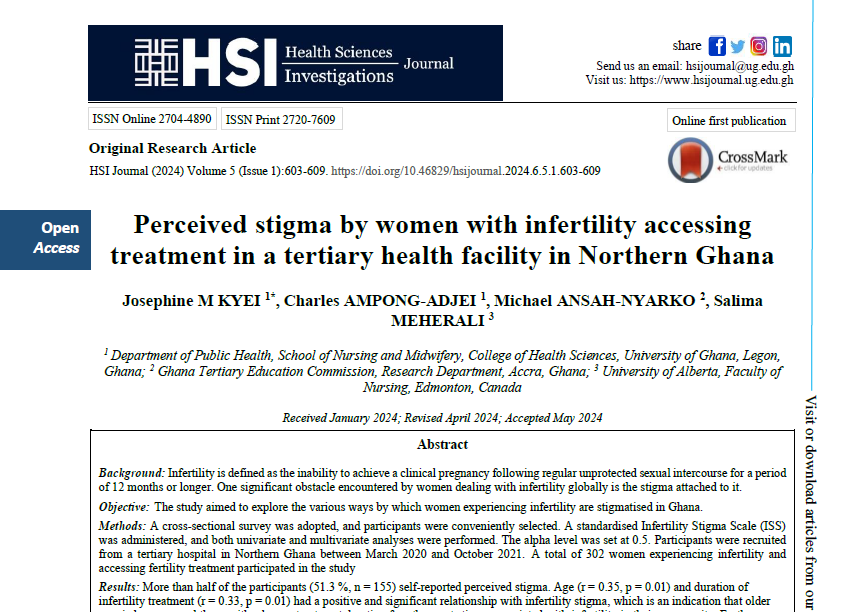Perceived stigma by women with infertility accessing treatment in a tertiary health facility in Northern Ghana.
Perceived stigma by women with infertility and accessing treatment in a tertiary health facility
Abstract
Background: Infertility is defined as the inability to achieve a clinical pregnancy following regular unprotected sexual intercourse for a period of 12 months or longer. One significant obstacle encountered by women dealing with infertility globally is the stigma attached to it.
Objective: The study aimed to explore the various ways by which women experiencing infertility are stigmatised in Ghana.
Methods: A cross-sectional survey was adopted, and participants were conveniently selected. A standardised Infertility Stigma Scale (ISS) was administered, and both univariate and multivariate analyses were performed. The alpha level was set at 0.5. Participants were recruited from a tertiary hospital in Northern Ghana between March 2020 and October 2021. A total of 302 women experiencing infertility and accessing fertility treatment participated in the study.
Results: More than half of the participants (51.3 %, n = 155) self-reported perceived stigma. Age (r = 0.35, p = 0.01) and duration of infertility treatment (r = 0.33, p = 0.01) had a positive and significant relationship with infertility stigma, which is an indication that older married women and those with a longer treatment duration face the most stigma associated with infertility in their community. Further, married women with tertiary education were found to experience greater stigma from their families if they were unable to conceive after
several years of marriage. Generally, participants perceived stigma from different social contacts, including family, friends, and the community at large.
Conclusion: Given the prevalence of infertility stigma in the study area, creating public awareness of the causes of infertility, as well as the consequences of stigma on the well-being of affected women, would be needed. It is also important that interventions that focus on enhancing the resilience of women with infertility to cope with public and enacted stigma are explored. These interventions, if designed with the views of the affected women and implemented in a culturally sensitive fashion, would help improve their quality of life.


